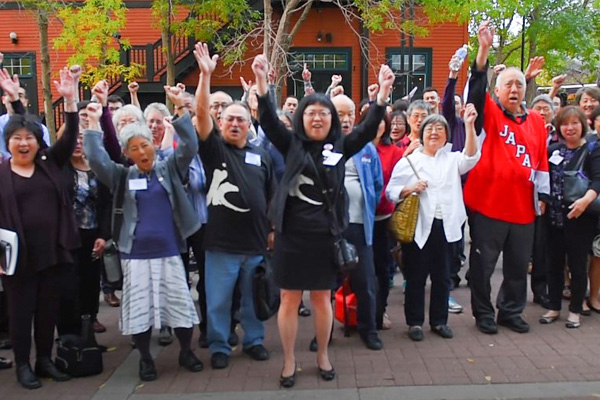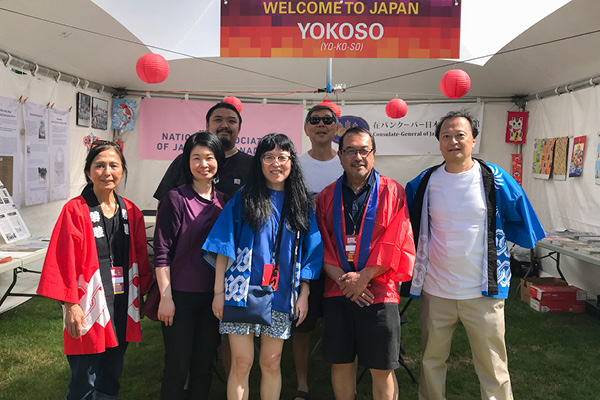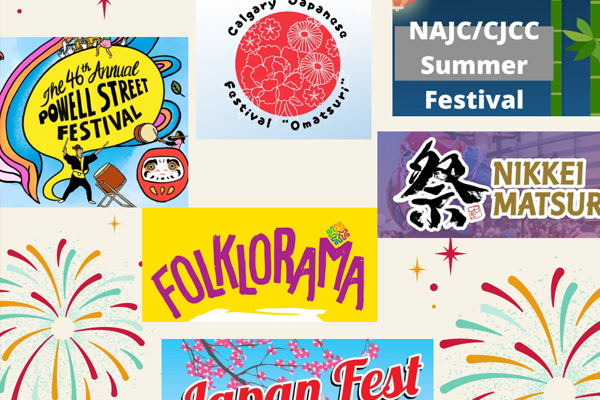by Lorene Oikawa
May is Asian Heritage Month. Another opportunity to share our stories and to learn about other Asian cultures in East Asia, Southern Asia, Western, Central and Southeast Asia. There are about 48 countries, and they vary greatly in terms of ethnicity, culture, religion, economies, government systems, climate, history and food. Within each community there are also differences, for example, multi-generational families who have been in Canada for a long time and families who have come to Canada more recently.
One sad reality and commonality with Asian Canadians is racism. We saw a surge of hate during the start of pandemic when Asian Canadians such as Chinese Canadians, Japanese Canadians, and even a young Indigenous woman was targeted with racist hate. They were accused of killing people with the virus and told to “go back where you came from.” One of the Japanese Canadian elders who was attacked in Metro Vancouver said she was shaken and wondered if the past was being repeated. She was born in Canada, and a child when Japanese Canadians were falsely accused of being enemy aliens and forcibly uprooted, dispossessed, incarcerated, and exiled in the 1940s.
Targeting people of Asian ethnicity is not new. In 1907, in Vancouver, anti-Asian rioters smashed and looted their way through Chinatown before heading to their target, the Powell Street area which was home to many Japanese Canadians. Chinatown was first in their path since it was next door to where the mob had congregated beside the then city hall at the corner of Hastings Street and Main Street. The ugly rhetoric that was fuel to the fire was that Asians would take white workers’ jobs and threatened a white Canada. Anti-Asian action was already taking place in the US and provided the inspiration for Vancouver to form an Asiatic Exclusion League. Three days before the riots in Vancouver, there was a riot in Bellingham where South Asian millworkers were attacked and driven out of town.
In times of crisis, the measure of our society is challenged. Some will contribute to the fear mongering and blaming of a group of people. If we know our history and the injustices, we will be resistant to the hateful rhetoric. We must ensure the injustices are not repeated. In our solidarity to fight against racism, we must also learn about the beauty of our diversity in our communities. This is what makes our country stronger when we work to create and sustain thriving, inclusive communities.
On May 2, NAJC President Lorene Oikawa, NEB Director Susanne Tabata, GVJCCA Human Rights Committee Judy Hanazawa along with other community members witnessed new Anti-Racism Data Legislation introduced in British Columbia. One of the National Association of Japanese Canadians’ member organizations, the Greater Vancouver Japanese Canadian Citizens’ Association (GVJCCA) participated in a provincial consultation process and commends this legislation. The NAJC has participated in federal and provincial consultations and joined with other communities to call for responsible race-based data collection to help in the work to eliminate systemic racism and racial inequities. NAJC sees the introduction of BC’s Anti-Racism Data Legislation as a good step forward for evidence-based decision making and hopes this inspires action in other jurisdictions.
On May 27, we will be screening Migration + Resilience, an episode from the documentary series, British Columbia: An Untold History, which highlights Japanese Canadian history and the story of the 1907 Anti-Asian riots. Our special guests include educator and author Masako Fukawa and the director Kevin Eastwood who will be available for some questions and a chat after the screening. The event will start at 6 pm Pacific, 7 pm Mountain, 8 pm Central, 9 pm Eastern, and 10 pm Atlantic.
Pre-register for the online event at https://bit.ly/BCUntoldDoc
We are continuing our sharing of Japanese Canadian stories during this 80th anniversary of the start of the forced uprooting, incarceration, dispossession, and exile and the 75th anniversary of the founding of the NAJC. Terumi Kuwada, one of our past NAJC presidents, tells us about her family in the latest post on the NAJC website and social media. From her family collection of photos we see her father at a road camp and a Japanese play (shibai) performed at an internment camp. You can read her story and see the photos at https://najc.ca/terumi-kuwada-shares-her-family-story/
Share a brief story about your family in 1942 and/or your family’s involvement in some of the NAJC activities and events since 1947. Email your ideas, family stories and photos to national@najc.ca
On May 13, we will be remembering the first arrivals at Kaslo, the second of the ghost towns where Japanese Canadians were incarcerated. Japanese Canadians arrived on a paddlewheeler, SS Nasookin, on Kootenay Lake. The population of Kaslo would grow from 500 to about 1,200. About 78 stayed in the historic Langham Hotel which was built in the 1890s. The building is now a charitable public arts heritage centre and Japanese Canadian Museum.
Next month we will have more stories and events such as the Online National Outreach Meeting for The Anglican Healing Fund for Japanese Canadians on June 25.
Keep up to date with NAJC news & events by signing up to the NAJC e-news at https://najc.ca/subscribe/
Stay tuned for an important BC provincial government announcement with the Japanese Canadian community on May 21st.
The National Executive Board hopes you were able to spend some time with the important women in your life on Mother’s Day. We thank all mothers and those who took on the role of mother. We have special thoughts for the survivor moms and grandmothers because it is the 80th anniversary of the start of internment/incarceration and many are no longer with us. Their strength and determination ensured the survival of the next and future generations. We will share their stories so that the lessons are learned and remembered. Their love is with us, in our memories and in our hearts.



